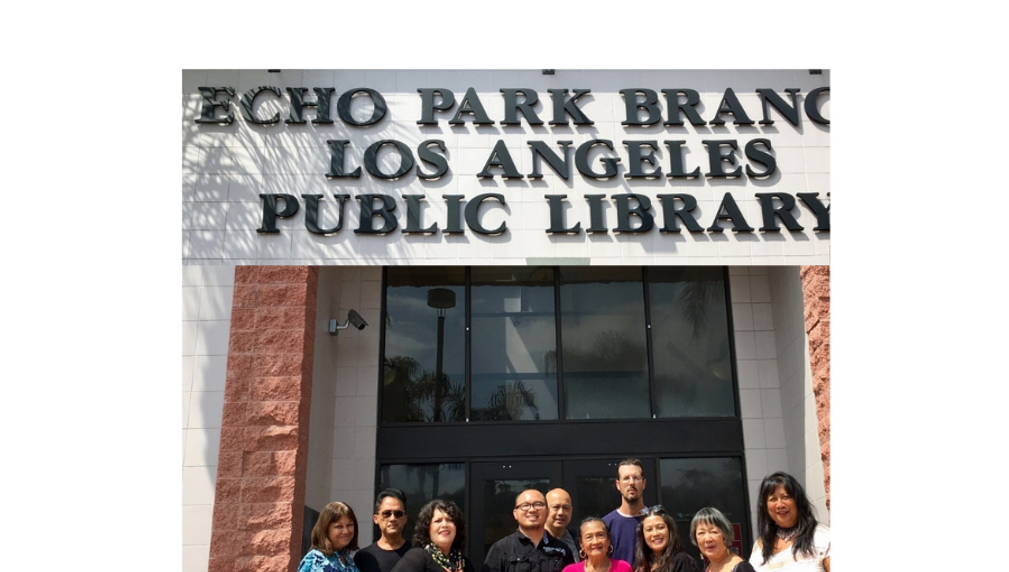Promote Green Spaces, Create Wildlife Habitats, & start Pollinator Gardens in Historic Filipinotown (HiFi) and Echo Park
FOEPL proposes to create green spaces via its new WILIHALA project w/c was inspired by the LA City Green New Deal & w/starter HiFi Rotary Club funds in 2023 & w/the Environmental Stewardship webinars. WiliHaLA will expand to other EPL grounds in 2024 w/funds from LAPL Neighborhood Science Dept.
If awarded, new WiliHaLAs will be started in our target areas.
Green spaces help sustain pollinators, enhance biodiversity & environmental health, provide educational & recreational activities, & foster community action in conservation & sustainability.

What is the primary issue area that your application will impact?
Green space, park access, and trees
In what stage of innovation is this project, program, or initiative?
Expand existing project, program, or initiative (expanding and continuing ongoing, successful work)
What is your understanding of the issue that you are seeking to address?
With urbanization, Los Angeles has lost green spaces which are important in the diversity & health of our ecosystems. This occurs in dense areas of our city; coupled with few economic resources to compensate for their loss. Exacerbating this is the traditional view of green spaces often consisting of high-resource use spaces e.g. lawns & ornamental trees which provide limited support for pollinators & wildlife.
Pollinators e.g. bees, butterflies, hummingbirds, & insects play a vital role in pollinating plants & crops for food.
Other green space benefits:
Biodiversity: Attracts a variety of pollinating species.
Food Production: Fruits, vegetables, & nuts require pollination to produce crops. Educational & Recreational Value: These serve as educational tools, raising awareness about pollinators, & their role in ecosystems. It allows time to enjoy nature.
Community Benefits: These gardens bring communities together. They spur action in conservation & good gardening practices.
Describe the project, program, or initiative this grant will support to address the issue.
This project will focus on reimagining & inspiring green spaces to increase the sustainability of natural ecosystems w/in the urban setting. Available spaces, e.g. apt balconies, unused garden areas, vacant spaces will be targeted.
In LA, there are efforts to support pollinators through planting pollinator-friendly gardens, creating habitat corridors. Certain species may still be at risk due to loss of native plants, fragmentation of habitats, & exposure to pesticides.
Elements of the plan
The EPL Teen Council & other young peoples will be the emissaries of WILIHALAs. They may live close by, and/or live in apts. They then can recruit neighbors in the building to start a mini-WILIHALA in their porches/balconies.
Outreach to: residents in single family homes & apts; seniors; through churches & schools; & legacy community orgs eg FASGI, PWC, SIPA
Staffing: gardener & a lead organizer to coordinate all activities including volunteers
Outreach to: Local Schools: Betty Placencia, Rosemont Elem School, Citizens of the World Know apt bldgs: Manila Terrace, Lucena on Court (SIPA), Mindanao, Bahay, Villa Ramos, HiFi Collective(SIPA) Neighborhood Councils - RVNC and EPNC Churches: St. Columban, Loreto, Iglesia ni Cristo
Tools: Incentives, flyers, social media, events w/ snacks at EPL branch
WILIHALA & miniWILIHALA installation
Develop green space (WiliHaLA) templates Native plants acquisition
Install drip system in single family homes
Develop post grant support for gardens
Describe how Los Angeles County will be different if your work is successful.
Four-fold Vision: To address the lack of green spaces in urban areas around downtown Los Angeles & transform pocket spaces into WiliHaLAs or pocket pollinator gardens. Start 5-10 WiliHaLAs in residential homes & 10 in multi-unit complexes during the period of Oct 2024 - Oct 2025. This will include mini-WiliHaLAs for apartment porches & balconies. To provide opportunities for social connection, mutual help, & sharing of indigenous sustainable practices. This will be cross generational to include teen/young people & elderly citizens. Culturally appropriate outreach will be used to contact & connect w/ them; and to foster ties among residents in apt buildings to share best practices to grow & maintain mini-WiliHaLAs. To build awareness about native plants, its uses, and its maintenance in a way that contributes to natural habitats and water conservation.
To increase awareness & adoption of LA's Green New Deal (GND) to achieve LA's GND Five Zeros targets.
What evidence do you have that this project, program, or initiative is or will be successful, and how will you define and measure success?
Quantitative
1. Participation Track # of Teen/young people who sign up & participate
Track attendance at events and/or meetings
Count volunteer hours by Teen/young peoples
Determine the average # of hrs per Teen/young people volunteers.
2. Social Media (SM) Reach
Measure SM followers on instagram & twitter.
Track project likes, comments, shares, & views on posts
Monitor the usage of project hashtags.
3. Project Outputs
Track # of WiliHaLAs & mini-WiliHaLAs started
Impact Metrics: number of teens, young people, seniors, & community members reached
Qualitative 1. Gather feedback & satisfaction via surveys, questionnaires & focus groups
2. Measure personal development through skills gained & self reported growth
3. Measure community Impact eg Increased community awareness of green gardens
4. Long term project engagement
Track # Teen/young peoples’ continued engagement & participation
Ongoing Involvement: # of Teen/young peoples who take on leadership roles or initiate their own projects
Approximately how many people will be impacted by this project, program, or initiative?
Direct Impact: 150.0
Indirect Impact: 2,000.0